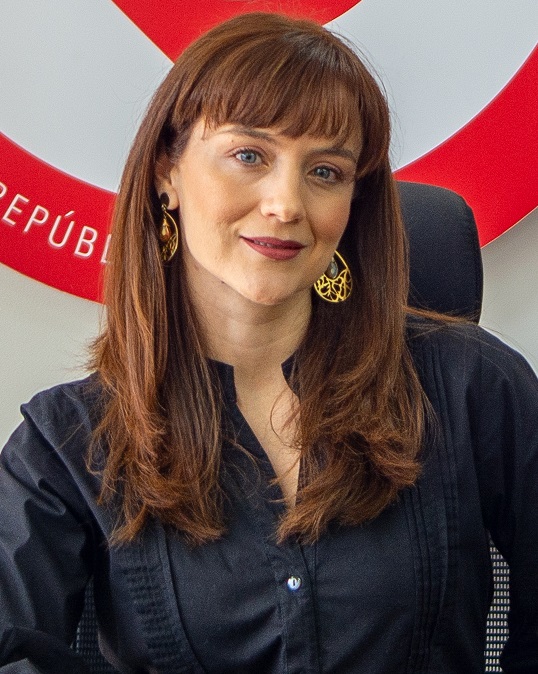On the lighter side of things, we ask Paola Bonilla, Executive Director, Communications Regulation Commission (CRC) in Colombia, what makes her tick.

What would you describe as your most memorable achievement?
A significant one was returning to the CRC as commissioner. Since I stopped working there in 2014, I have always had the challenge of returning to another position. To have achieved it in 2020, through a competition based on merit, is one of my main accomplishments, as it was something I worked on for several years.
What first made you think of a career in technology?
Although I studied Economics, I was involved in a science club and a Colombian project called Gobierno Escolar. Since then, I have been passionate about subjects that have to do with technology and science.
At the National Planning Department, I was in charge of developing innovation projects based on Big Data as an input for the construction of public policies. For this, I co-ordinated the Data Scientist Unit at DNP, the first technical team in the public sector that applied and promoted the use of data for public policy decision-making in Colombia.
What style of management philosophy do you employ in your current position?
I believe that the main task of a leader, regardless of hierarchical level, has to do with trust and building strong and aligned work teams. With that in mind, I always try to build up teams that work in an articulated and co-ordinated way, with clear objectives and a clear horizon.
What do you think is the current hot technology conversation topic?
Crises, such as the COVID-19 pandemic, have led regulators in several countries to issue measures that guarantee the provision of services and ensure that users continue with their personal and professional lives. I believe that with the space that Digital Transformation has gained, the use and appropriation of ICT is a topic that will stay on the public agenda.
How do you deal with stress and relax outside of the office?
I prefer calling it moments of greater or lesser pressure. Concerning my personal life, sharing good times with my family, reading and exercising are some of the activities that I carry out.
If you could go back and change one career decision, what would it be?
I appreciate the responsibility and integrity of the decisions that I have made. Although sometimes I may have made mistakes or chosen decisions that were not quite right, in the end, all of them led me to a process of learning and also to where I am today.
What do you currently identify as the top investment areas in your industry?
I believe that promoting human talent with qualifications with good relevance will significantly impact digital competitiveness, just as generating conditions for the appropriation and use of ICT.
What are the specific challenges of the region when implementing new technologies in Latin America?
Regarding regulatory policies, we consider that it is necessary to reinforce regulatory improvement as an approach to guarantee the quality of the regulation. It must be done through different tools based on collaboration, the simplification of regulatory frameworks, load reduction, generation of spaces for self-regulation and using technologies for data management and innovation.
All this must be combined with experimental schemes such as regulatory sandboxes, which results in the application of intelligent regulation. It has shown us positive impacts as part of the regulatory reform.
For that matter, I consider it of great value to turn attention to the spaces of experimental schemes in the region’s regulatory processes, among other innovation regulatory tools.
What changes have you seen in your job role in the last year, and how do you think they will develop in the next 12 months?
Over the next 12 months, CRC has consolidated a planning process and a clear roadmap. We have a regulatory agenda for the period from 2022 to 2023 with more than 30 regulatory projects, where 41% correspond to competition issues, 24% issues of well-being and user and public rights, 24% to innovation and regulatory improvement; 7% for management of value groups and 4% for institutional strengthening.
What advice would you give someone aspiring to a C-level position in your industry?
More and more opportunities are opening up for women, especially in C-level positions in the telecommunications industry. My wish is to continue working to position women to construct agendas that allow for generating more and better opportunities.
My advice is to set a clear goal aligned with your desires and aspirations and direct all your actions to achieve them. Having a long-term vision and establishing small successes will allow you to meet your goals.


